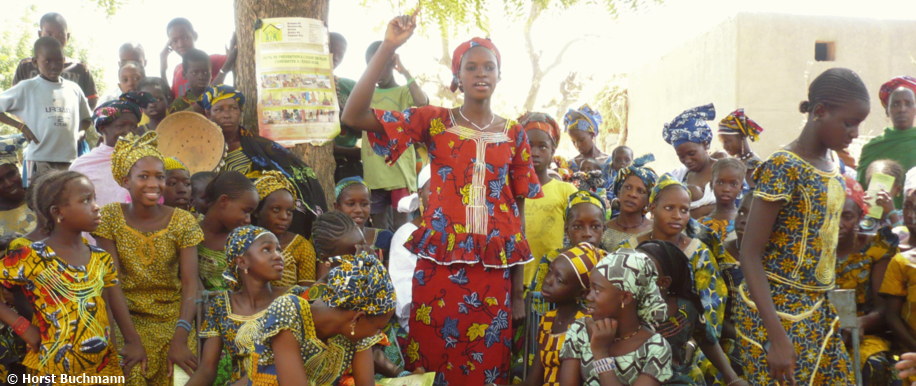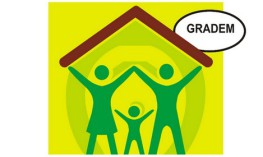Mali: Promoting children’s access to qualitative education in rural areas
Context
In rural areas of Mali, many children do not visit school or drop out before finishing their primary school education. Consequently, most of the population is not able to read or write.
A reason is the far too low income for families living in the villages, which doesn’t allow them to provide for school fees and material for their children. Over the last years, GRADEM and KiRA have successfully promoted the creation and development of cooperatives in 58 villages. In these cooperatives, families support each other with small funds for starting an income generating activity, such as growing vegetables, raising animals or trading spices. With this support, families have established a small trade that allows them to finance the schooling of their children. In the project communities, more than 6.500 children, who did not attend school previously, now go to class regularly. This project supports the creation of new cooperatives and accompanies a total of 76 cooperatives in the villages to support the autonomous development in rural areas.
Challenges and solutions
Despite rising family income, some barriers towards quality education persist:
- most children lack birth certificates. They can therefore not take their primary school leaving exam and pass on to a secondary school. Hence, the project promotes the systematic establishment of birth certificates in the project regions.
- Corporal punishment is widespread in schools as well as in families. A consciousness for violence free education is rare. The project therefore promotes an understanding for children’s rights, in particular violence-free education and alternative teaching methods.
- Due to the lack of appropriate vocabulary in local languages, previous attempts to promote children rights have often lead to misunderstandings. Hence, locally adapted and culturally accepted expressions and phrases are gathered to create a better understanding for children’s rights.
- Mali’s climate is arid. Monoculture, the increasing use of pesticides and chemical fertilizers are degrading the barren soil. It is expectable that crop yields will decline soon diminishing the income of families again. The project will therefore introduce farmers and families in the villages to new ecological and sustainable agricultural methods.
Beneficiaries
Direct beneficiaries:
- Approximately 13.600 children (among them about 7.000 girls) of the 3 project regions Ségou, Koulikoro, Mopti, including
- 1.800 elementary school students
- 1.000 children in elementary school age, who do not attend school - 1.000 Parent-children-teams
As intermediates:
- The population of 86 villages in the project regions (76 villages, that will be accompanied for the establishment of cooperatives, and 10 villages in the region of Mopti that only participate in collecting and promoting children's rights in local languages)
- 175 local authorities
- 50 media representatives
- 14 representatives of the local Municipalities
- 600 students of teaching and instructing
- 3 experts in alphabetization and 6 experts in traditional communication
- Networks of children’s and women’s rights organizations in Bamako
Funding
Project costs: 555.500 Euros
Funding:
- German Ministry for Economic Development and Cooperation (BMZ)
- The foundation Familie-Haas-Stiftung
- Kinderrechte Afrika e. V. (donations)
Titelbild: Girls speak up during a community meeting. The creation of cooperatives in the project villages has lead to more and more initiatives from the inhabitants themselves to allow all children in their community to attend school and to provide future prospects, particularly for girls.
© Horst Buchmann





